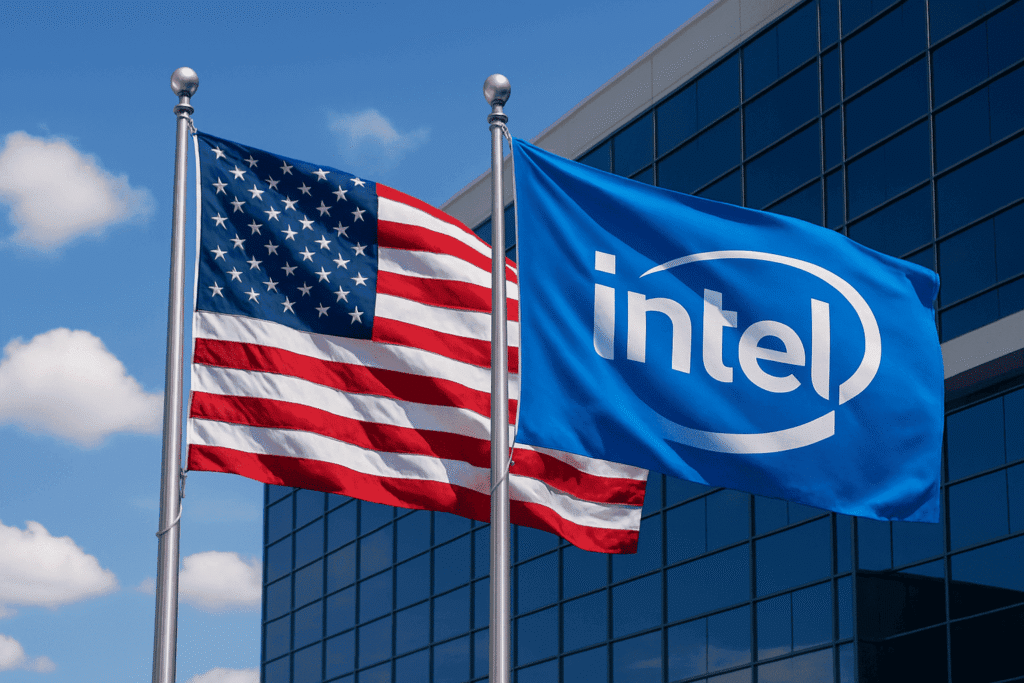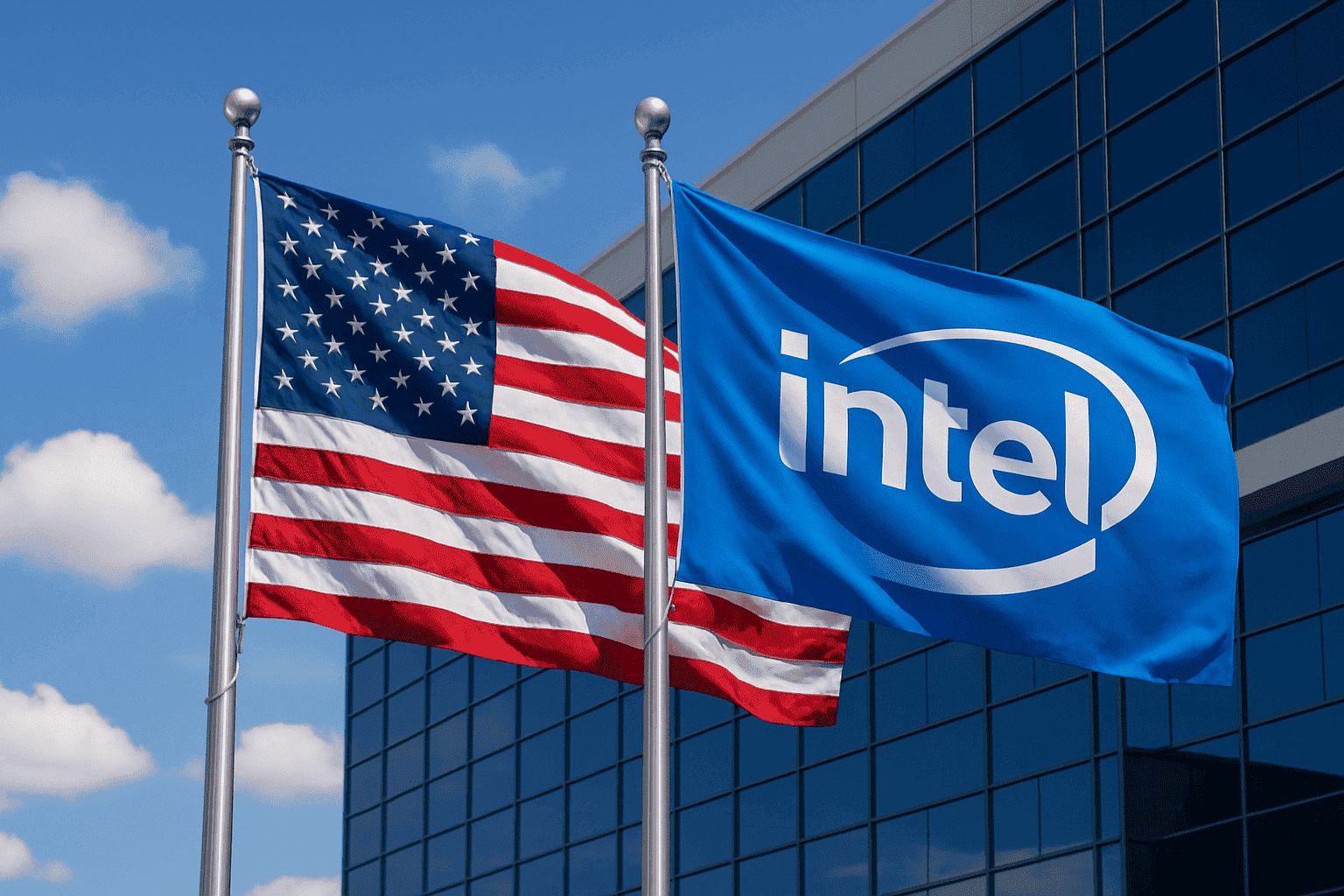The Deal: U.S. Takes 10 % Stake in Intel
On August 22, 2025, President Donald Trump announced that the U.S. government would acquire a 10 % equity stake in Intel, valued at roughly $10 billion, by converting previously awarded CHIPS Act grants into shares. The agreement, reached after meetings with Intel CEO Lip-Bu Tan, is portrayed as strategic intervention to bolster the nation’s semiconductor industry.
Context: Grants, Investments, and Intel’s Struggles
Under the Biden-era CHIPS and Science Act, Intel had received $8–11 billion in subsidies for domestic chip production. This equity arrangement effectively transforms public aid into government ownership, though non-voting shares—meaning no board influence—is expected.
Intel has been grappling with mounting financial challenges—losing $19 billion in the previous year and further billions in 2025. The government move mirrors an earlier $2 billion investment from SoftBank, which insiders interpret as a sign of continued support for U.S. semiconductor manufacturing.
Policy Implications & Industry Backdrop
This unprecedented government stake signals a shift toward heavy industrial policy in the tech sector. Trump emphasized the importance of having the U.S. as a “partner” in chipmaking and hinted at more such deals in the future.

Intel’s stock reacted positively, rising nearly 7% following the announcement. Still, experts caution that such interventions risk undermining private enterprise autonomy and could lead to shareholder dilution and uncertainty over policy consistency.
Strategic Realignment or Short-Term Guarding?
While proponents view the stake as stabilizing, critics argue it masks deeper issues—Intel’s lagging chip technology roadmap, delayed fab rollouts, and weak competitive footing against rivals like TSMC and AMD The Economist warns that leveraging state ownership without clear strategy is risky—chipmaking’s complexity demands sustained innovation and supply-chain resilience, not political optics .
Moreover, analysts point out Intel’s poor capital allocation history—heavy spending on buybacks and dividends instead of focusing on long-term R&D and process leadership.
FAQ – Intel Government Equity Stake
Q1: What does the U.S. government’s equity stake in Intel mean?
A: It means the government would directly own part of Intel, giving it influence over the company’s strategy and future growth.
Q2: Why is the Intel government equity stake controversial?
A: The deal raises concerns about government overreach, corporate independence, and its impact on the global semiconductor industry.
Q3: How does the Intel government equity stake affect the chipmaking industry?
A: The stake could reshape competition, strengthen domestic manufacturing, and reduce reliance on foreign chipmakers.
Q4: Will the Intel government equity stake benefit American consumers?
A: Potentially yes, as it may secure supply chains and stabilize prices, but long-term effects remain uncertain.
Stay connected with TrendScoop360 for more updates on this story and other trending news across the United States and the world.

